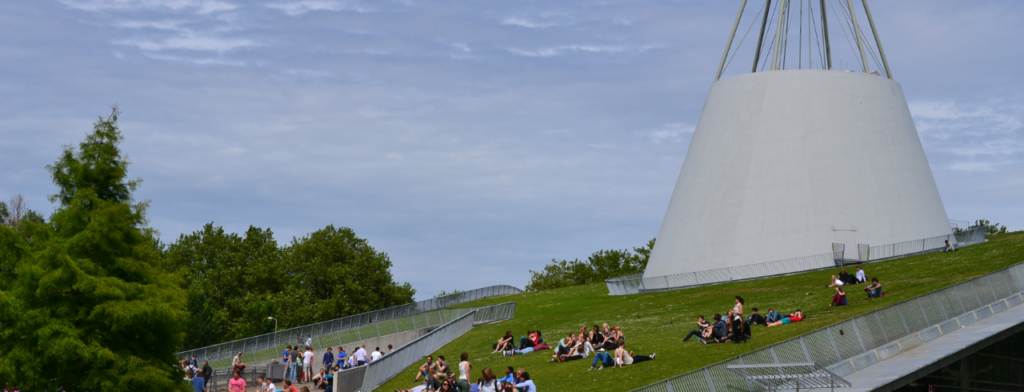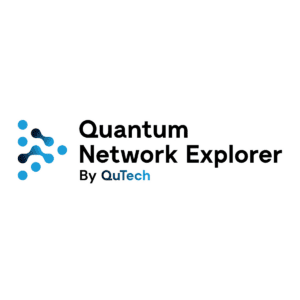13.03.2023News
Internship at TU Delft (QuTech)

Internship at Delft University of Technology (QuTech) in Delft, the Netherlands
Host: Quantum Computer Science at Delft University of Technology in Delft, the Netherlands
Opportunity open to: Master students (can be part of a master project) active in eligible countries
Length of the stay: Minimum of three (3) months, to be discussed with host organization
Benchmarking suite for Quantum Network Applications
Quantum networks with a small number of quantum nodes are presently being developed in research labs around the world. In QIA, we have developed the world’s first full stack quantum network system, which allows programming of quantum network applications in high level software. A high level SDK for this has also been released as part of Quantum Network Explorer, presently running on a simulation backend for the public. Going to this website, you can find both a graphical interface to explore running simple tasks on a Quantum Network, as well as an SDK with examples to play with.
In this internship, you will take part in developing a test suite to test the workings of such a full stack system. Along the way we will also learn more about the requirements of implementing specific applications on quantum hardware. A starting point for this are several applications (such as blind quantum computation) for which software code is already written and available to use in this project. The code can be run on a simulated quantum network that can be configured with some parameters (e.g. memory lifetime of the qubits, quality of the entanglement, …). Running each such application does give some confidence in the workings of this system of course, and allows us to extract features such as the success probability of the application. One question would be to understand how informative different applications are about the workings of the system. To learn more about Quantum Networks, we recommend a general overview article [3] to start with. While it is possible to conduct the project with an abstract understanding of the quality of entanglement and the memory lifetime, we recommend expanding your quantum knowledge with the notion of (1) the fidelity of quantum states – this determines the quality of entanglement (2) quantum teleportation, and (3) a model for the memory lifetime of qubits. You can read about this in e.g. [4,5], and a summary will be provided at the start of this project.
In addition, the project leaves room to explore new applications for which no code samples are yet available, or to come up with interesting other tests. Some ideas for such tests already exist that can be explored or expanded as part of this project.
Right now there are no test suites for quantum network applications available. The project leaves room for you to work with QIA researchers to publicly release a test suite, and contribute to publishable research together with QIA researchers. Test suites for quantum computing systems are not suited for testing quantum network systems, since quantum network applications need often very different things than quantum computing applications. However, papers written in the domain of quantum computing may give some ideas of what such research can lead do [1,2].
References
[1] SupermarQ: A Scalable Quantum Benchmark Suite, Teague Tomesh, Pranav Gokhale, Victory Omole, Gokul Subramanian Ravi, Kaitlin N. Smith, Joshua Viszlai, Xin-Chuan Wu, Nikos Hardavellas, Margaret R. Martonosi, Frederic T. Chong, 28th IEEE International Symposium on High-Performance Computer Architecture (HPCA-28), 2022, https://arxiv.org/abs/2202.11045
[2] QPack: A cross-platform quantum benchmark-suite, Huub Donkers, Master Thesis, 2022, https://repository.tudelft.nl/islandora/object/uuid:b715d9c3-c8a4-4a8e-98b2-762458a3d7cb
[3] Quantum Internet – A Vision for the Road Ahead, S. Wehner, D. Elkouss, R. Hanson, Science 362 (6412), 2018, https://www.science.org/doi/10.1126/science.aam9288
[4] Quantum Computation and Quantum Information, M. Nielsen and I. Chuang, Cambridge University Press, 2010, http://mmrc.amss.cas.cn/tlb/201702/W020170224608149940643.pdf
[5] Lecture Notes, Quantum Cryptography, T. Vidick and S. Wehner, edX QuCryptoX, https://learning.edx.org/course/course-v1:CaltechDelftX+QuCryptox+3T2018/home
About the QIA Internship Program
In this internship call, there are five (5) available opportunities in Europe’s leading academic institutions, and gain first-hand knowledge and experience in enabling a European Quantum Internet ecosystem!
Depending on the program, internship opportunities are open to either master students, PhD candidates, postdocs or young professionals studying or working at a university, research institution or a company in one of the eligible countries*. The program covers a maximum of 5,000 EUR per internship to cover for travel and accommodation expenses.
This internship program aims to initiate or strengthen collaboration with universities, research institutes and companies in the eligible countries through offering internship opportunities for their students and young professionals.
You can learn more about the application procedure here.
Deadline of submission: 31 May 2023
*List of eligible countries: Belgium, Bulgaria, Croatia, Cyprus, Czechia, Estonia, Finland, Greece, Hungary, Ireland, Latvia, Lithuania, Malta, Poland, Romania, Slovakia, Slovenia, Sweden

